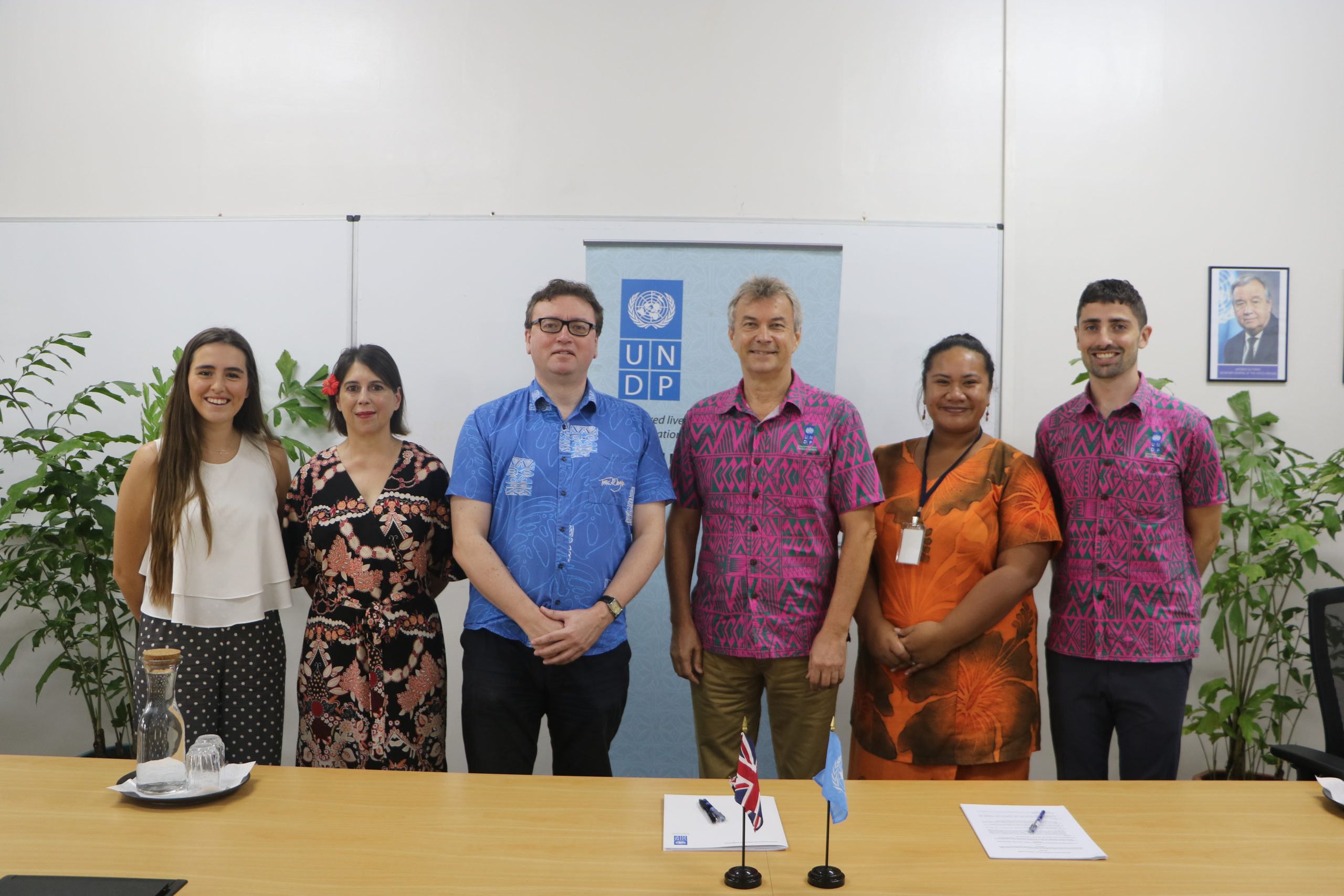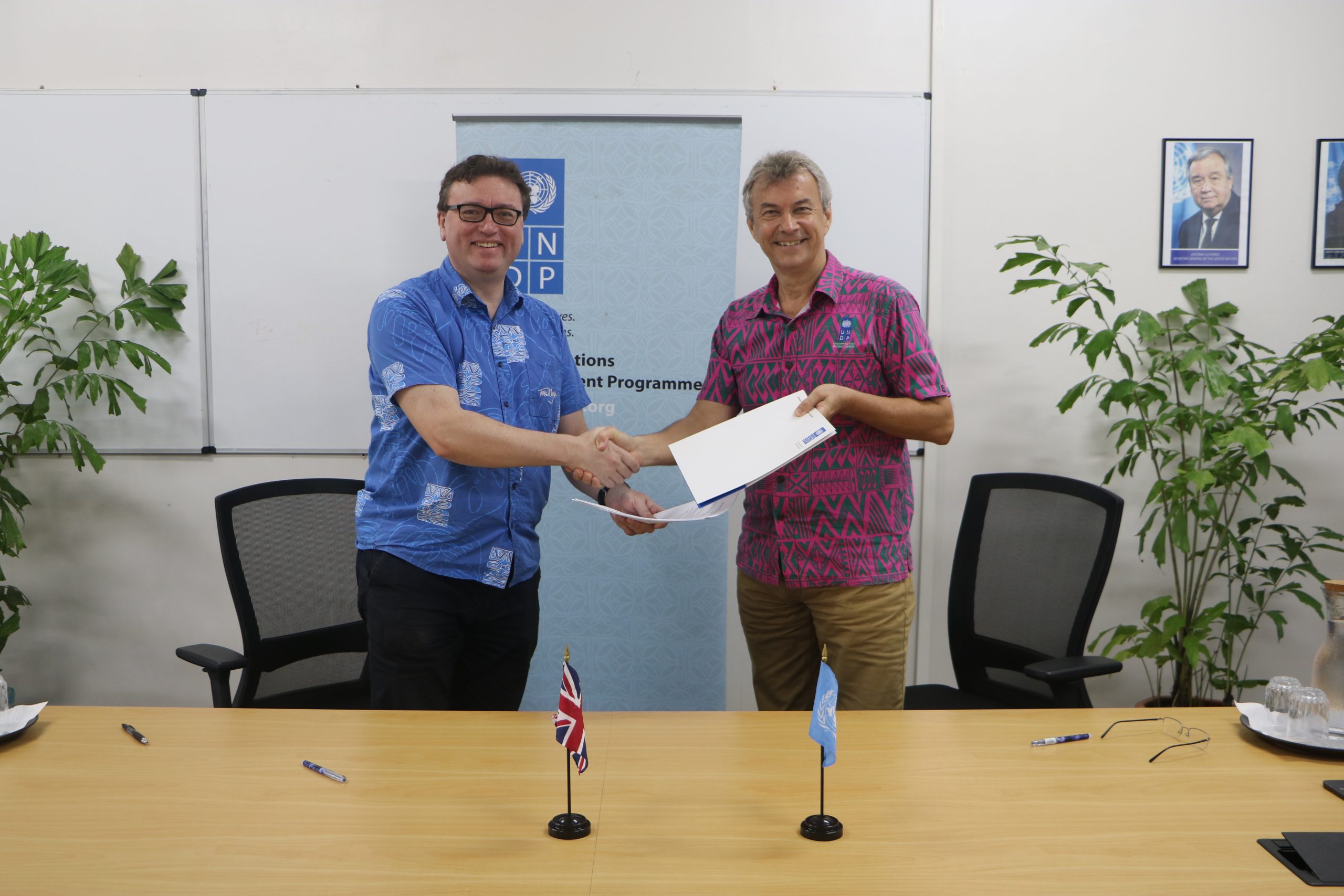Apia, Samoa – The British High Commission in Samoa is co-financing a UNDP project that promotes a
circular economy with the aim to create youth employment in the segregation, collection and recovery of
glass waste.
Their assistance is worth £37,000 and forms part of the Samoa Multi-Country Office’s project under UNDP’s
COVID-19 Rapid Financing Facility, targeting the glass waste stream in particular.
The need for investment in glass waste management was highlighted following Samoa’s COVID-19 Socio-
Economic Impact Assessment, which recommended the creation of public-private partnerships to accelerate
value chain development in the waste management sector through job creation.
The project, titled Glass Recovery to Accelerate Circular Solutions in Samoa (GRACSS), will be
implemented by the Samoa Recycling and Waste Management Association (SRWMA).
British High Commissioner to Samoa, His Excellency Mr. David Ward, and UNDP’s Resident
Representative, Mr. Jorn Sorensen signed the agreement on Monday.
His Excellency Mr. David Ward said, ”I am delighted that the United Kingdom and UNDP are able to work
together on this project which will help ensure that Samoa can build back better from the COVID crisis, both
by creating ongoing employment to mitigate the economic impact of COVID on Samoa, and by ensuring that
the recovery will be more environmentally sustainable than ever before, keeping Samoa an attractive place
for all its residents and visitors.”
“This is a vital project for job creation and waste management in Samoa as it seeks to pair climate action
with COVID-19 socio-economic recovery and resilience-building through youth employment. This will also
help foster a circular green economy in the recovery of low-value waste streams, including glass, which are
currently imported in its various forms, but landfilled in Samoa in view of low exportable value and volume,”
said UNDP Resident Representative, Jorn Sorensen.
Glass represents the second largest waste stream (by mass) in Samoa, accounting for 23% of total waste
composition, yet shows unique versatility because it is 100 percent recyclable. Exhibiting properties similar to
that of natural aggregate, the angular nature of crushed glass increases the stability, durability and
performance of the new product being manufactured.
JOINT PRESS RELEASE
One UN House, Tuanaimato, Samoa | www.ws.undp.org
The project will be implemented over 12 months, testing the feasibility of crushed glass into three selected
products, including concrete blocks, headstones and asphalt, for their commercialization.
-ENDS-
For media queries, please contact:
Laufaleaina Lesa, UNDP Multi Country Office, Samoa|Tel. +685 23670|E: laufaleaina.lesa@undp.org
www.ws.undp.org @UNDP in Samoa, Cook Islands, Tokelau & Niue @undpsamoa
Tise Fauolo-Siaosi, British High Commission Apia, Samoa | www.gov.uk
E: tise.fauolo@fco.gov.uk | Ph: +685 767 3363 | @UKinSamoa @UKinSamoa
*****
UNDP is the leading United Nations organization fighting to end the injustice of poverty, inequality,
and climate change. Working with our broad network of experts and partners in 170 countries, we
help nations to build integrated, lasting solutions for people and planet. Learn more at undp.org or
follow at @UNDP.


